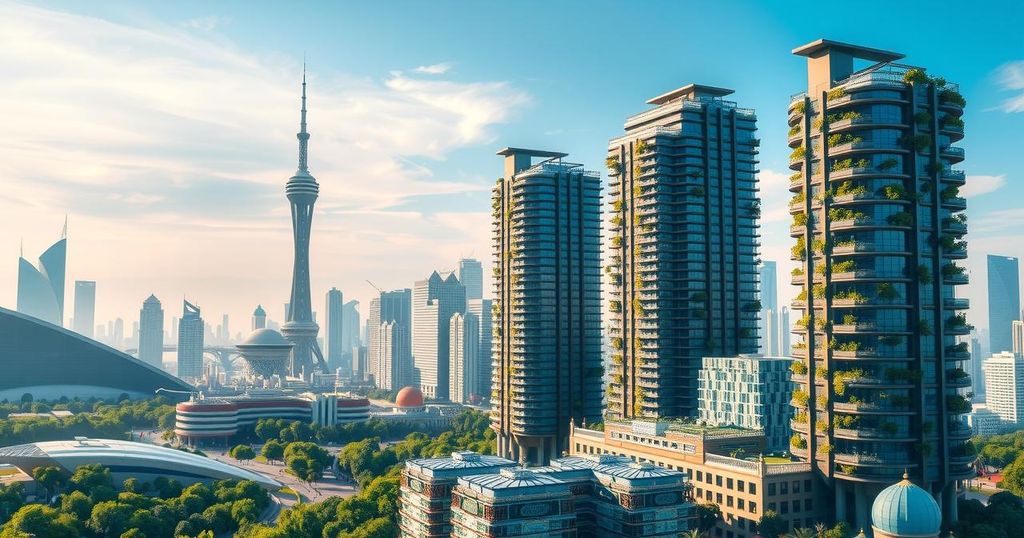Senegal’s GDP surged by 8.9% in the third quarter, driven by oil exports, with a 9.3% growth forecast by the IMF for next year. The nation is set to export natural gas from a major project starting in early 2024. Prime Minister Ousmane Sonko plans to reduce the budget deficit significantly by 2027, while market bonds remain stable amidst these changes.
Senegal has experienced unprecedented economic growth, achieving an 8.9% increase in gross domestic product (GDP) in the third quarter, marking a substantial rise from the previous quarter. This growth corresponds with the commencement of oil exports, prompting the International Monetary Fund to forecast a 9.3% expansion for the upcoming year. Year-over-year, the economy expanded by 11.5%, indicating robust economic activity during this period.
Further acceleration in economic growth is anticipated as Senegal prepares for natural gas exports from BP Plc’s Greater Tortue Ahmeyim liquefied natural gas project, expected to begin in early 2024. Cheikh Niane, the Secretary-General of the Ministry of Energy, Petroleum and Mines, stated, “First gas from the GTA project should give another growth spurt in the first quarter of 2025.”
This economic upturn provides a vital opportunity for Senegal to enhance its public finances in light of a projected budget shortfall exceeding 11% of GDP this year. In response, Prime Minister Ousmane Sonko announced plans to reduce the deficit to 3% of GDP by 2027 through expenditure cuts and improved tax collection.
Additionally, the financial market showed stability, with Senegal’s dollar bonds remaining steady, including notes maturing in 2033 which rose slightly. Woodside Energy Group Ltd., Australia’s leading oil and gas producer, initiated oil production at the Sangomar project offshore Senegal in June, contributing to this economic boom.
The growth initiatives reflect Senegal’s strategic efforts to strengthen its economy amidst challenges, showcasing a commitment to enhancing fiscal responsibility and sustainability in the long term.
Senegal’s economic growth has reached a record level, driven primarily by oil exports, with further expansions expected due to impending gas shipments from a significant liquefied natural gas project. The government is actively working to improve its fiscal situation in light of considerable budget deficits, while stability in bond markets reflects investor confidence amid these developments.
Original Source: www.energyconnects.com




